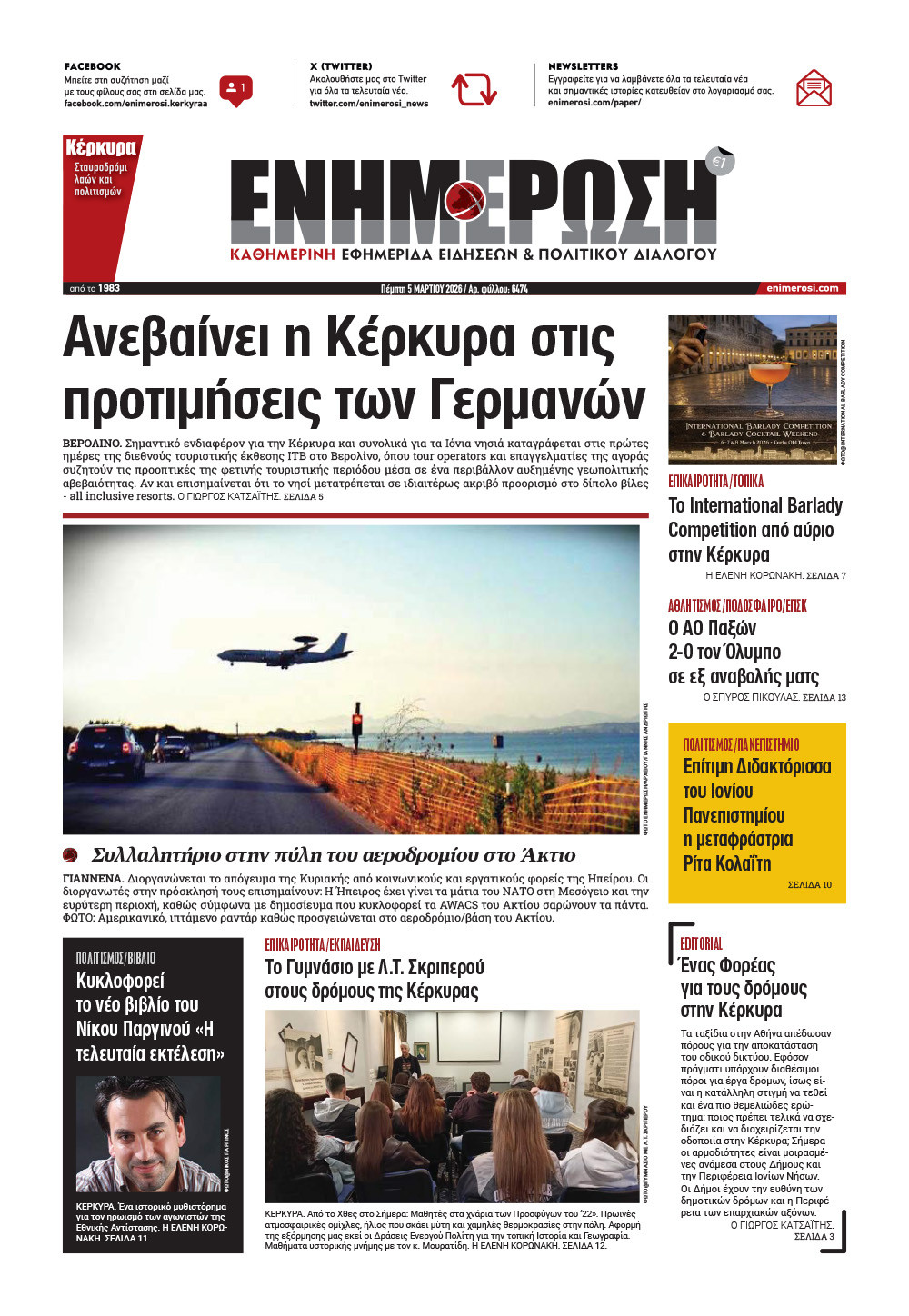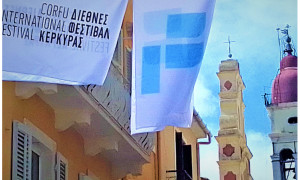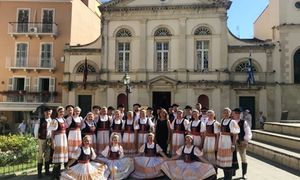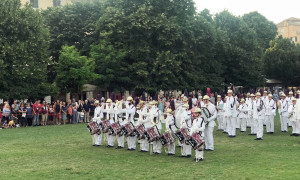Ionian Islands International Philharmonic Band Festival a great success - impressions and thoughts for the future

CORFU. The evening concluded with a stunning show of 200 drones lighting up the sky, and all the conductors got commemorative gifts for taking part.
Corfu hosted the Ionian Islands International Festival of Philharmonic Bands from September 12 to 14, with 20 musical ensembles taking part. The event was organised by the Ionian Islands Regional Authority and artistically directed by Thanos Georgoulas.
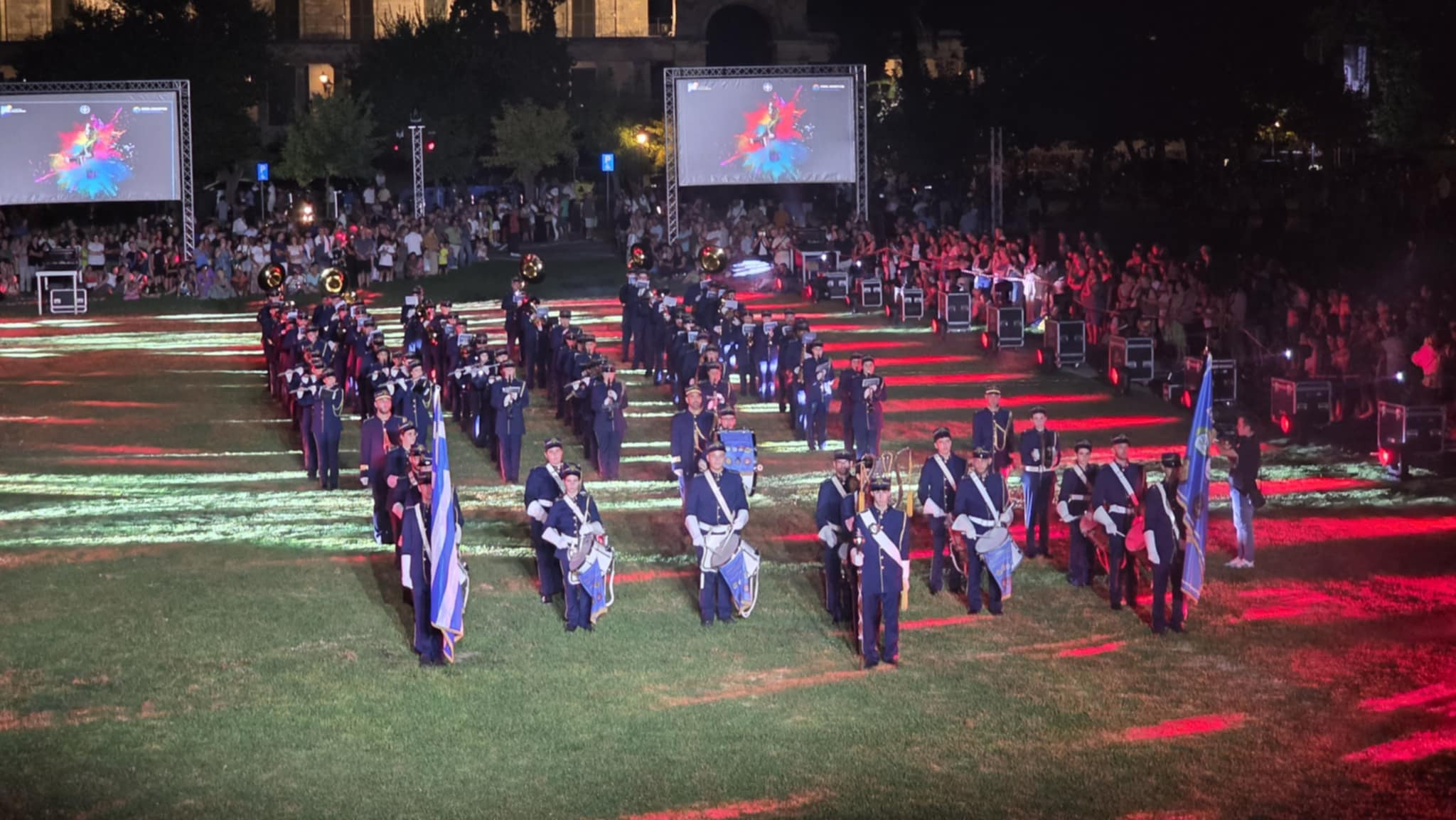
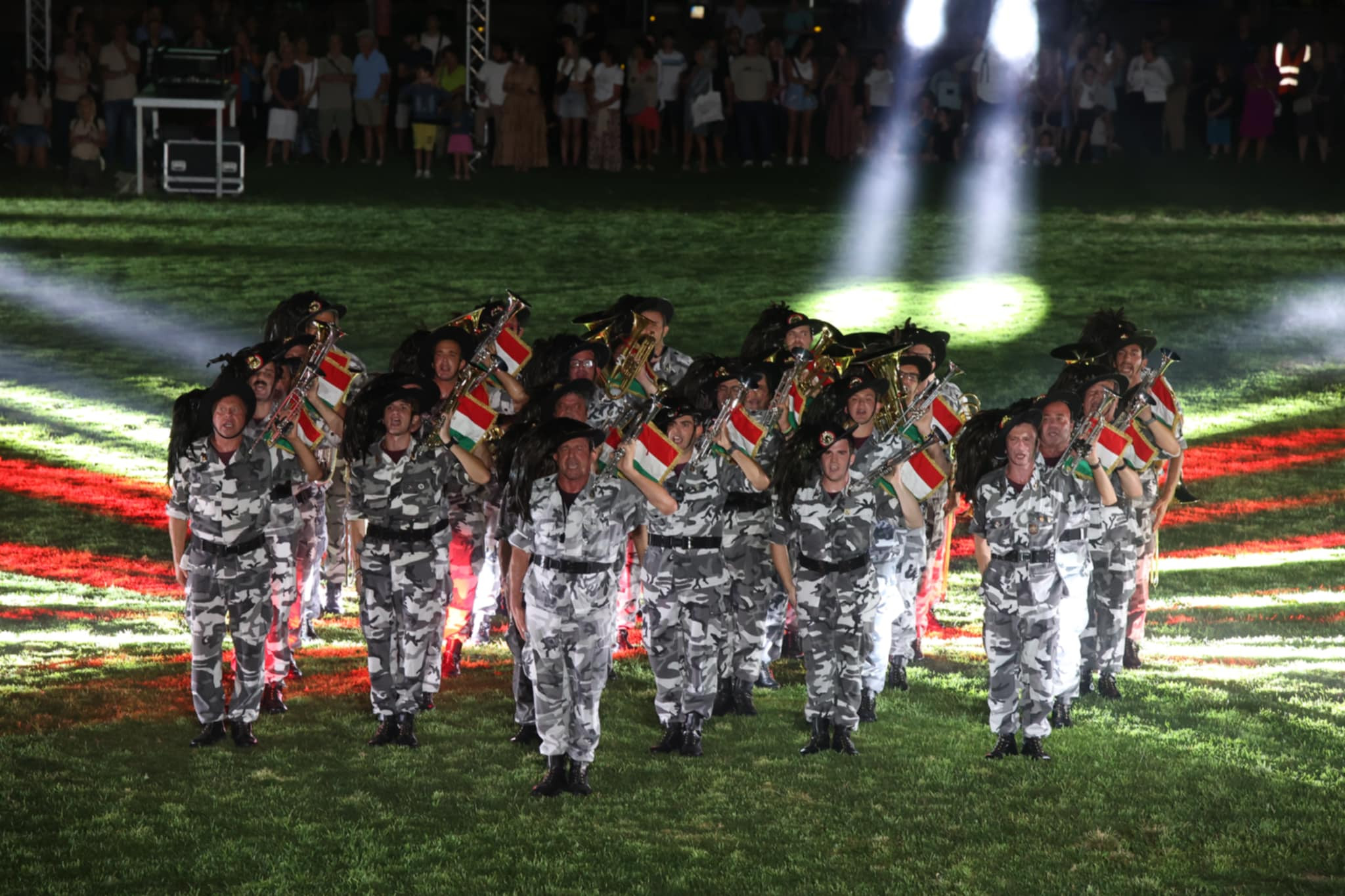
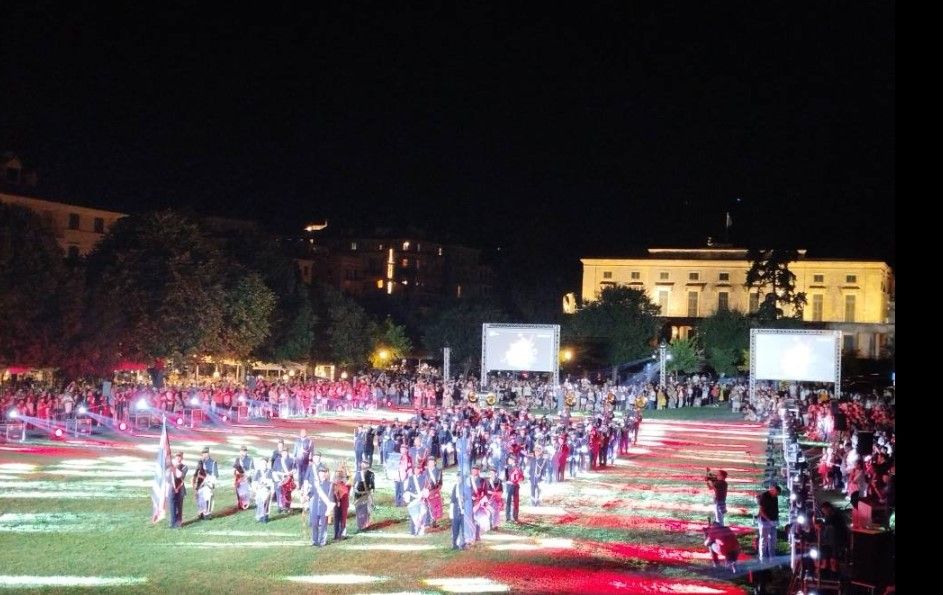
Participants and Events
The Corfu Philharmonic Bands at the festival included Liapades, Kinopiastes, Agios Matthaios “Lorentzos Mavilis,” Sinarades, Korakiana “Spyros Samaras,” Lefkimmi, Lefkimmi Music & Arts Association, Skripero, Gastouri “Omonia,” and the three bands from North Corfu—Thinali, Avliotes, and Karousades—who performed together as one ensemble.
Other Ionian Islands were represented by the Zakynthos Municipal Philharmonic Band, Alykes Zakynthos, Zakynthos Municipal Ensemble, and the “Pallis” School Philharmonic Band from Lixouri.
On top of that, the festival featured the Band of the Third Army Corps, the Air Force Band, and international guests: the Belgrade Police Band and the Italian Bersaglieri Fanfare from Bedizzole, known for their lively marching performances.
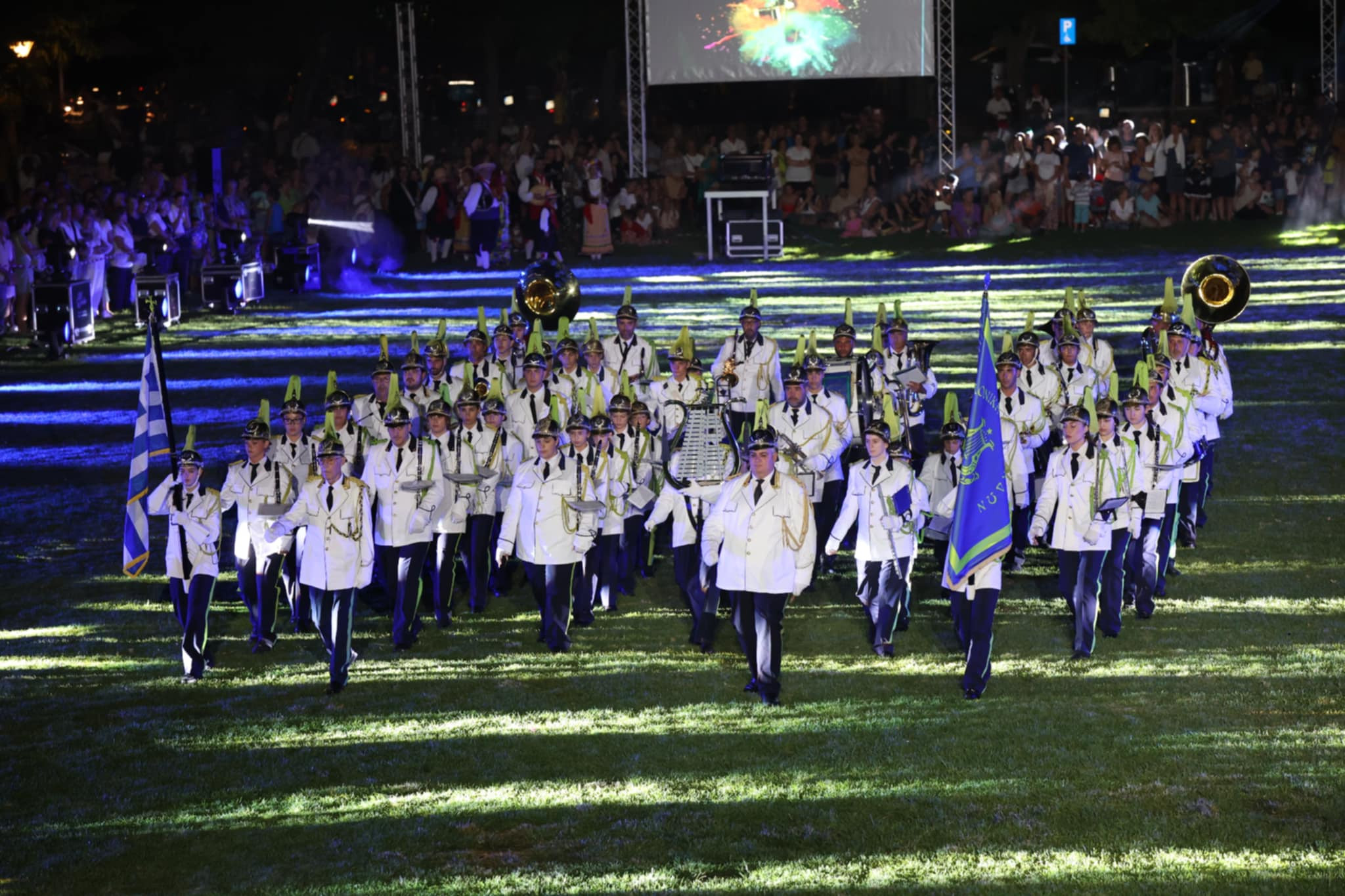
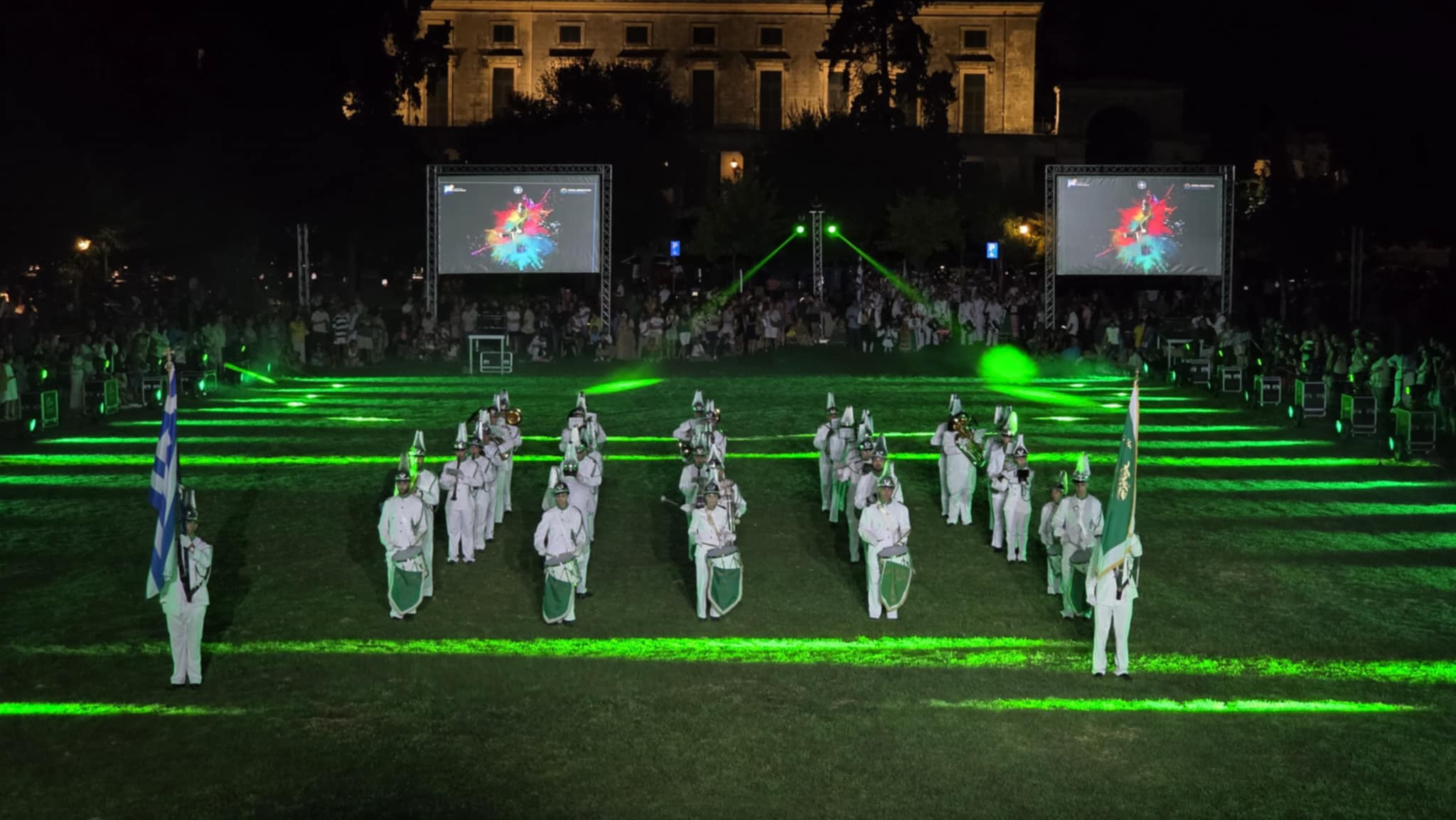
The festival began on Friday night, September 12, with small ensembles from several Philharmonic bands giving short performances at five spots around Corfu’s historic centre. On Saturday night, September 13, the action moved to the stage at Upper Square, where the bands concluded their performances after parading through the main streets of the old town, starting from three different locations.
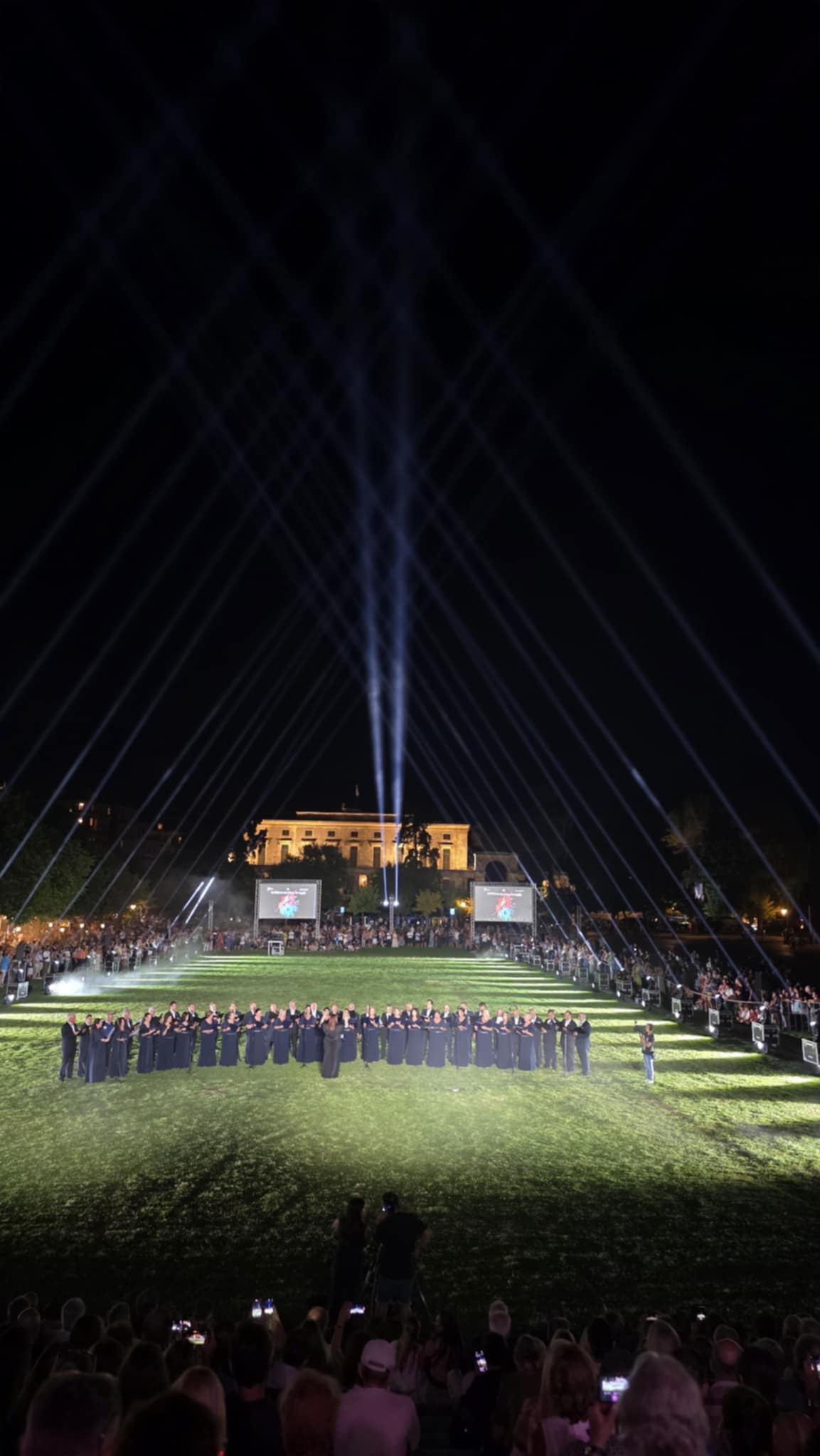
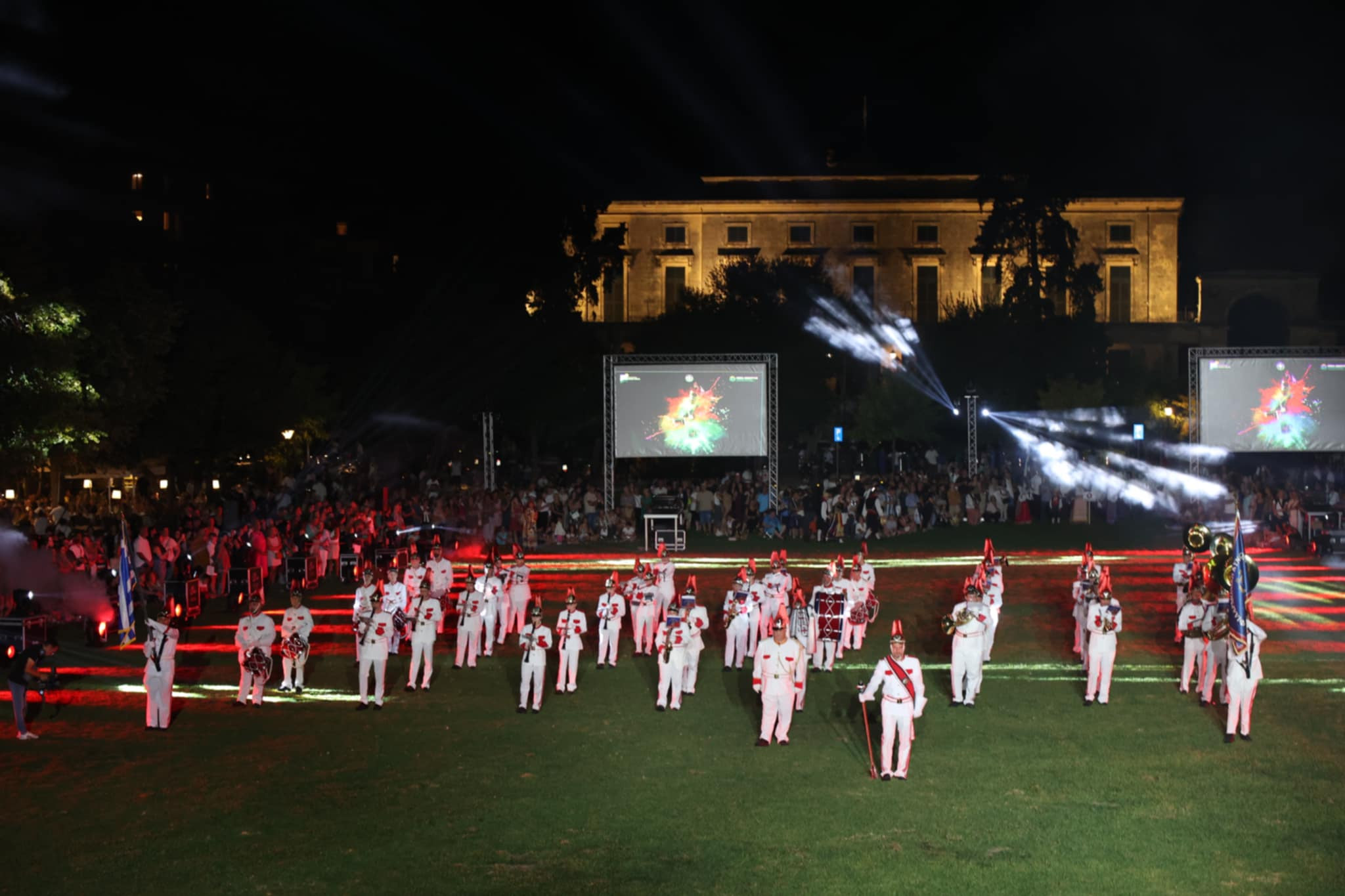
The festival’s grand finale took place on Sunday, September 14, at Lower Square, with all the participating bands performing in order of seniority. The event kicked off with the “Ionian Hymn,” specially composed for the festival by Thanos Georgoulas with lyrics by Anastasia Giannakopoulou, performed by Corfu’s Women’s and Men’s Choirs under Dimitra Kalogeropoulou. Government officials, local authorities, and a large crowd were in attendance.
Next came a dance performance choreographed by Niki Giannou. After that, all the Philharmonic bands entered one by one, giving short musical programmes, and some even performed formation displays enhanced by dramatic lighting. The night ended with a breathtaking sky show featuring 200 drones, and all the conductors were presented with commemorative gifts for taking part.
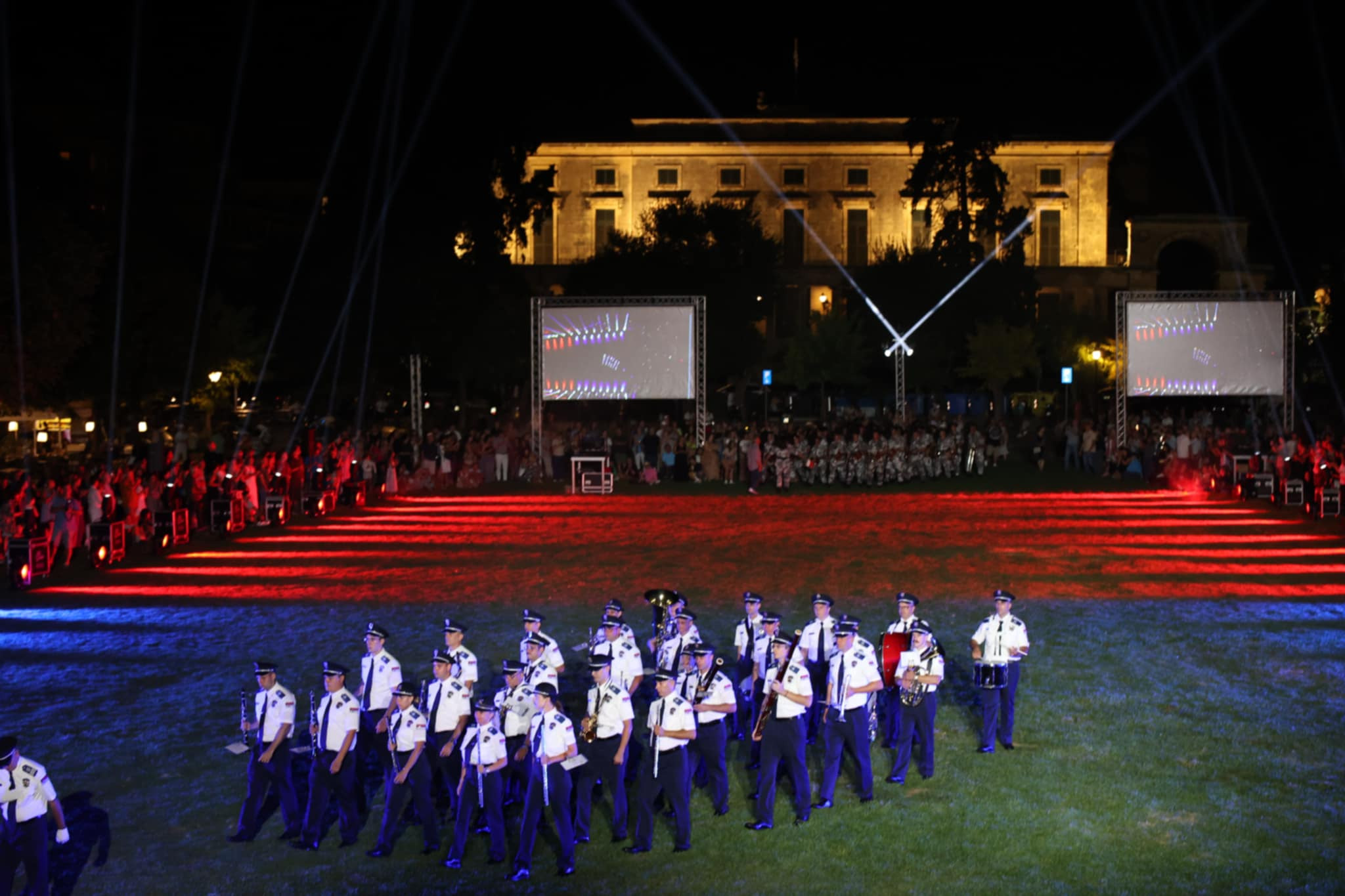
Impressions and Suggestions
The organisation of the International Philharmonic Festival can only be viewed with particular satisfaction in principle, as it marks the return of such an event to Corfu, with the hope that it will continue in the future. This was also noted by the Regional Governor, Yiannis Trepeklis, who stated in his closing remarks that this festival is expected to become an established tradition. Overall, the effort left a positive impression, especially from an organisational and technical standpoint, particularly regarding the closing event on Sunday.
However, with a view to repeating the festival in the future, we believe it is worth offering some thoughts for further improvement.
First of all, although the Philharmonic bands from outside the town gave their best, showcasing Corfu’s rich musical tradition within their capacities, the absence of the three town Philharmonic bands could not go unnoticed. In our opinion, this issue should be taken seriously by the authorities and organisers, at least in two respects: on one hand, ensuring timely coordination and planning so that such events do not conflict with other commitments of key potential participants, and on the other hand, using it as an opportunity to address longstanding issues faced by these organisations (as well as many others).
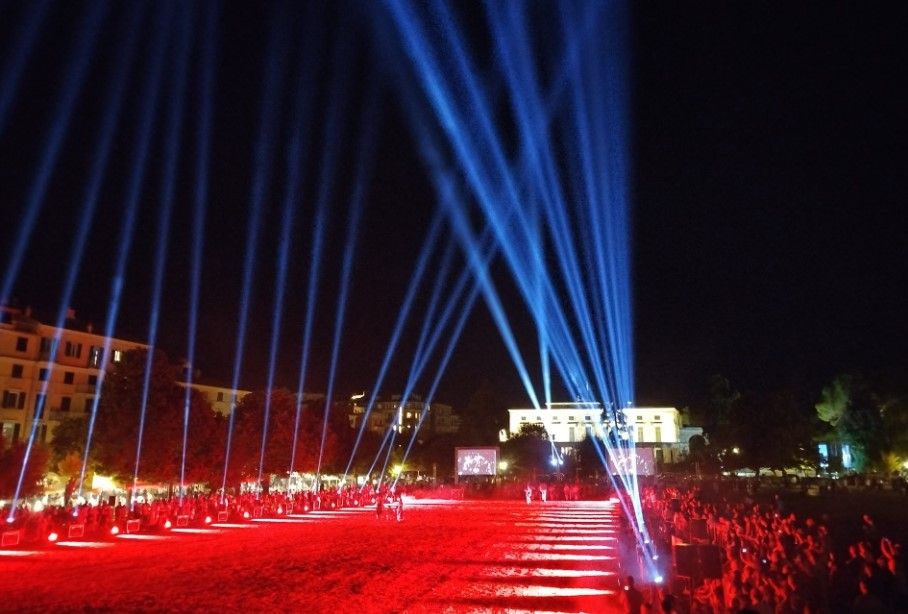
Furthermore, we believe that the content of a festival like this can clearly be enriched beyond the central spectacle, where bands simply perform either in concerts or parades (after all, these are not lacking in Corfu…). Ideally, the programme could also include activities that make the festival more attractive to a larger number of high-quality international participants. One possibility would be the addition of an optional competitive segment, judged by a panel of recognised experts, which we believe would serve as a strong incentive for accomplished musical ensembles to take part.
Similarly, parallel music education activities could be organised, such as short workshops for specific instruments or instrument families, offered to a limited number of musicians (with priority given to young participants) from the participating ensembles. In fact, much of the teaching staff for such activities could come from local music institutions (including the Ionian University, which is often overlooked in such events), helping also to keep costs down.
There are many ideas for enriching the festival programme, which could also extend to other parallel non-musical activities, modeled on similar international festivals (while, of course, respecting local circumstances). Examples include showcasing and promoting local products to foreign participants, organising guided tours of monuments and attractions, and more.
All of these additional activities could be offered for a reasonable participation fee, as is common in similar large-scale festivals. Revenues from such fees could be used to offset the festival’s budget or support a charitable or social cause.
In conclusion, with the first event showing positive results and the audience expecting even more from future events (which are not insignificant in terms of budget), we reiterate our wish for the festival to continue, grow, and become an established tradition, as the success of such events is also measured by their continuity and consistency.
GERASIMOS MARTINIS
Photos: Stamatis Katapodis



